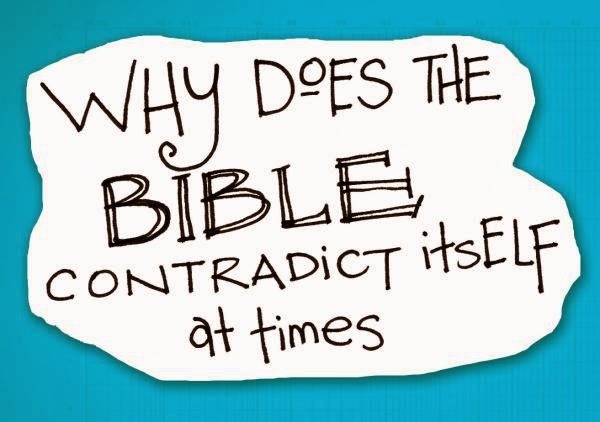DOES THE BIBLE CONTRADICT ITSELF?
 1. Does the word of God have contradictions in it? Should the Bible not have ANY errors?
1. Does the word of God have contradictions in it? Should the Bible not have ANY errors?a) Even the most severe critics of God's word do not say that it is "full" of contradictions. There are, however, some legitimate questions about Bible accuracy that can be raised.
b) As a general point, when tackling apparent contradictions and errors, it pays to consult such books as John W. Haley's "Alleged Discrepancies of the Bible," and Gleason Archer's "Encyclopedia of Bible Difficulties." Many difficulties are hardly new discoveries. In fact, some have been known for a long time, even for centuries. The responses of conservative Christians (or, if applicable, Orthodox Jews) should be consulted by the open-minded before skeptics begin their criticisms.
c) Many alleged contradictions can be dealt with as being scribal errors, especially when concerning numbers in the books of Samuel, Kings, and Chronicles. For example, one has 700 horsemen versus 7,000 in 2 Samuel 8:4 and 1 Chronicles 18:4, or 8 versus 18 as being the age of Jehoiachin when he ascended the throne.
d) Gleason Archer, when explaining 1 Samuel 13:5, which has an apparent scribal mistake in it that increases the number of chariots the Philistines had, said the following.
i) "The accurate preservation of statistics and of the spelling of proper names is notoriously difficult in manuscript transmission, and 1 Samuel has more than its share of textual errors. But the doctrine of scriptural inerrancy guarantees only the original manuscripts of Scripture as preserved from all error; it does not guarantee absolute trustworthiness of all copies ever made from that original."
e) Another seeming contradiction occurs with Matthew, where we read that Jesus met two blind men. In Mark and Luke, we only read about one blind man meeting Jesus. In Matthew and Mark, we read that Jesus went to pray alone three times in the Garden of Gethsemane, whereas, in Luke, we read that Jesus went alone to pray on one occasion.
f) In both of these instances, the apparent inaccuracies can be explained because the events in one account could be contained in the other, which gives a more complete description of events.
g) The apparent discrepancy between John 5:31 and John 8:14 is more interesting than those above. Jesus was referring to the Old Testament law that two or three witnesses were necessary to convict someone in capital cases (Deuteronomy 17:5) or other ones also (Deuteronomy 19:15). Jesus didn't mean what he was saying wasn't "true," but rather that it wasn't "valid" under these rules of evidence if (hypothetically speaking) no one else could bear witness to its truth. The use of that little but crucial word "if" makes what Jesus said into a hypothetical. But since the Father also bore witness to what Jesus bore witness to, it would also pass legal muster (cf. John 5:32, 37; 8:18).
h) We hope the above explanations help you understand apparent contradictions better. A more major issue, however, to consider is how to explain away the places where the Bible predicts the future, and it happens, such as in Daniel about the history of Persia and Alexander the Great's Greek empire and what followed afterwards when his generals and their descendants fought. The remarkable accuracy here is so amazing higher critics turn the Bible's prophecies into history despite the Aramaic / Hebrew text shows it couldn't have been written in the second century B.C. You may wish to look at such a book as Josh McDowell's "Evidence That Demands a Verdict" if you wish to know more on this subject.
The End ...

Comments
Post a Comment